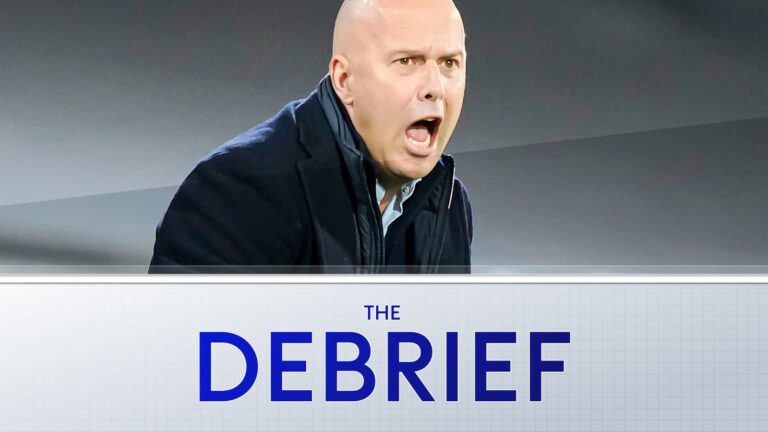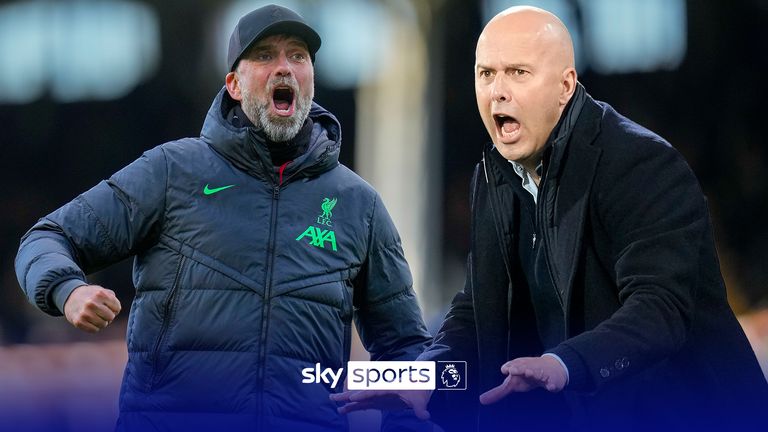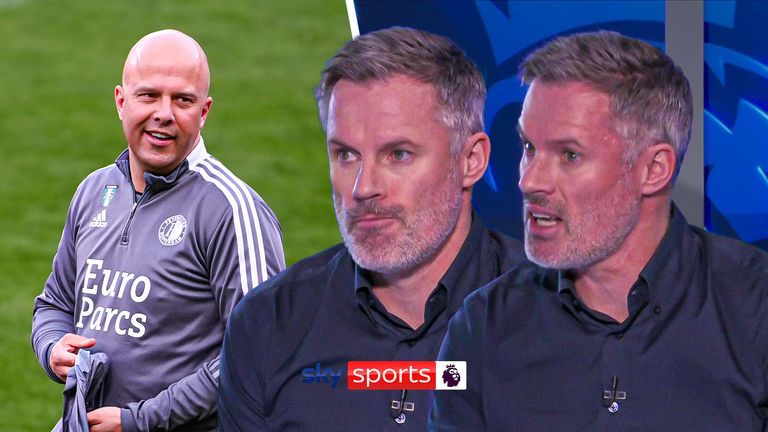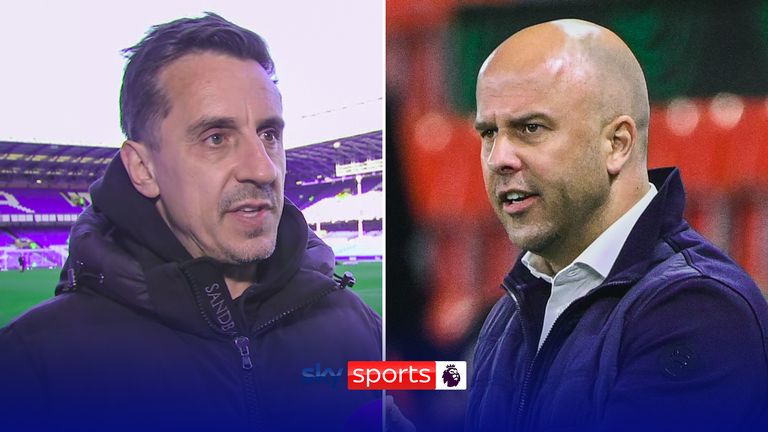After spending 48 hours immersed in the world of Arne Slot, it’s easy to convince yourself that Liverpool have identified football’s next super manager. A man operating at the tactical forefront, an expert in man management and a master of the media.
But listening to the praise of those who worked with Slot, the mind returned to the same process, not only with Ruben Amorim’s admirers only recently, but also digging into Erik ten Hag’s record before his arrived two years later. There is.
There were stories of how he had transformed his previous teams, on and off the field. His open approach to management, his pragmatic attitude which, over time, had led inexorably to success at the Go Ahead Eagles, Utrecht and Ajax.
At the time, Manchester United’s choice came down to Ten Hag or Mauricio Pochettino. One had just won the Dutch title, the other had just won the French title. But the main difference in how the two men were perceived came down to one thing.
Pochettino had previously worked in the Premier League.
One would assume that’s a strength given the work he’s done at Southampton and Tottenham. Indeed, the biggest match of Ten Hag’s career was a Champions League semi-final against Pochettino’s Tottenham – lost in dramatic circumstances.
But it was Pochettino who was tainted by the realities of the Premier League, aware that this was a manager who had already taken on Pep Guardiola and the rest and failed. Ten Hag offered hope. He could be the guru, the man who will change everything.
In psychology, it is called shiny object syndrome. This concept came to mind when reviewing the list of candidates to replace Jurgen Klopp at Liverpool. After Xabi Alonso ruled himself out of the competition, the names proposed were Amorim and Slot.
There is a logic to chasing the next big thing rather than the last one. After all, it’s a game that’s constantly evolving. But it is fair to point out that both benefit from the fact that they have not only been tested in the Premier League but in any of Europe’s elite leagues.
Consider the fact that Steven Gerrard would surely have been top of Liverpool’s list if he had only held out in Glasgow with Rangers. A series of second places would not have removed him from the competition. I had to move to Aston Villa to achieve this.
This illustrates well that it was Unai Emery who engineered the strong upturn in fortunes at Villa that took them to the brink of Champions League qualification. Emery spent 20 years in management, enduring the ebbs and flows that it brings.
Aerial sports Jamie Carragher cites Emery’s example in naming Thomas Tuchel as his preferred candidate for the Liverpool job in his Telegraph column reacting to Slot’s impending nomination. He naturally views both men as proven winners.
But Emery is now unworkable and would have been unpleasant a year ago. Even Tuchel, a Champions League winner more recently than Klopp, his Bayern Munich side currently second favorite to win the trophy in June, could be considered old news.
Everyone knows they are competent coaches. But are they conquering heroes capable of redefining the game, captivating the imagination, perhaps leading a team like Bayer Leverkusen to a treble while undefeated? Everyone also knows that they are not.
Shiny object syndrome is a human trait but, in some ways, it’s unique to the Premier League. In Italy, for example, the culture of coaches changing clubs is more entrenched. In recent years, Max Allegri and Antonio Conte have won the title with different clubs.
Carlo Ancelotti’s struggles at Juventus did not stop him from being named Milan manager. Maurizio Sarri has won one title with the Turin club since his time at Chelsea, but is less likely to land a top job in England now than he was when he wowed with his style at Napoli.
In truth, embracing the move within the Premier League has probably never made more sense. For all the coefficient frustrations this season, the strength in depth is evident. Emery is not the only talented coach to accept a mid-table assignment.
And yet there has been a detection of a cooling of interest in Roberto De Zerbi and his exploits at Brighton as form has dipped following player sales and chronic injuries. He found himself in the role of Guardiola-lite rather than Guardiola-without-world-class players.
These are the dangers of being overexposed. A shock defeat at home against Twente or a difficult afternoon at Boavista can be forgotten. No one in England noticed. Being tactically defeated by Manchester City under the Premier League microscope leaves scars.
Familiarity breeds contempt? That may be an exaggeration. But baubles can lose their shine when exposed to the glare of the Premier League. Ten Hag found out too quickly. The slot machine will indeed have to be very special to avoid the same fate.





